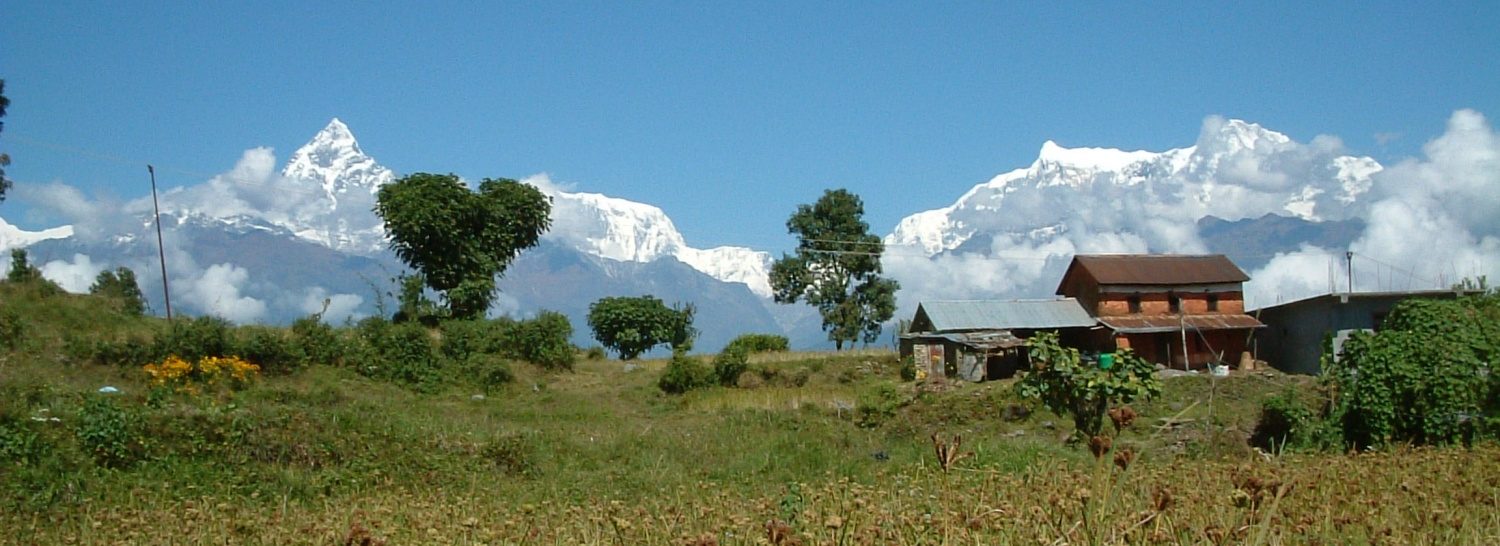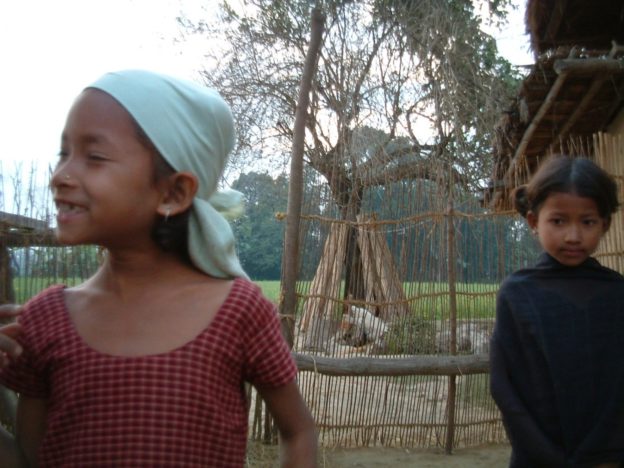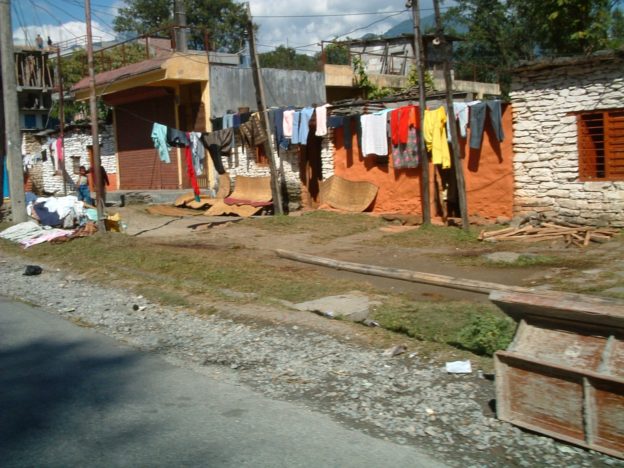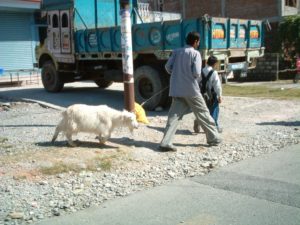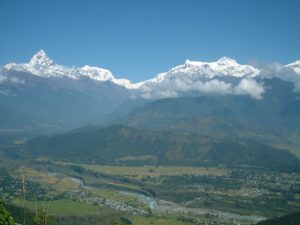It is evening, we sit in warm clothes around the crackling fire which is warming the few guests who have come to the national park, Chitwan, at the border of India, to look at tigers and rhinos. The dry wood is threatening to fall out of the fireplace, before Rabindra pushes the tree root in place. Suddenly we hear a shot. The gunfire comes from a few hundred meters away. Everyone becomes quiet.
- They are just cleaning their guns, the manager of the hotel says.
We wish to believe it. The manager does not want the guests to leave because of fear.
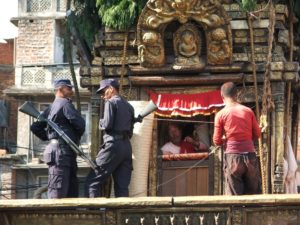
The Kings promise after the coup d´etat in February this year is to restore democracy within a hundred days, reestablish human rights and make peace. According to the King, the coup was according to the peoples will, chaos and anarchy was threatening to take over. The latter we can agree about.
But people have no confidence in the King. One of the first things he did after taking over the power in February was to deprive the citizens of their rights to information, freedom of assembly, freedom of association, freedom of speech, private property rights, the right to privacy, and he removed the prohibition against preventive custody.
- The King is not really interested in making peace, says an academic we meet at a café in Kathmandu. Outside the café, two policemen are checking people´s drivers licenses.
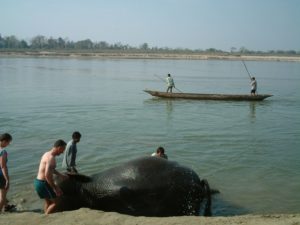
- In the night the Maoists come and demand that we close the roads with giant stones and trees. The day after, the security forces come and demand that we remove the same stones and trees, a man says, whom we meet in the road near Butwal. – It is impossible to get to the market to sell our vegetables and goods.
Along the main roads to Chitwan, large quantities of tomatoes are being thrown and milk poured out. The goods don’t make it to the marketplace because of roadblocks which often contain bombs. This way the Maoists show how they have the real power in Nepal. With an important exception: Kathmandu. With his 30.000 soldiers posted in the Valley the town is kind of a last fortress for the not so popular king Gyanendra.
The day the King took power, all the telephone lines were dead, most of public communication was stopped and the few news media still operating were all sending the Kings speech.
- We don’t even know if it is ok to send news about missing and cidnapped children, vaccination programs and children health, Raghu Mainali, leader of the Community Broadcasters Association says.

Even if people have had enough of the Maoists, it does not mean they are supporting the government.
- Peace is all we need, tell them that, says a man. – We need protection from the army.
But the army´s presence in the villages also makes people feel unsafe, because it increases the risk of crossfire.
After the coup d´etat Great Britain and the USA are considering to withdraw their military support to Nepal. India also has a Maoist movement many places in the villages, and therefore wants to continue its support, even if India also was negative to the Kings draw.
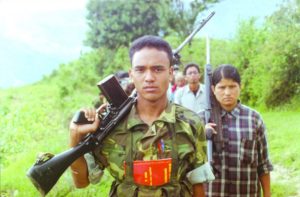
It is evening again. We are the only guests left and the hotel staff ask us if we can come to sit by the fireplace with them. They save the wood for the guests, and if we don´t come to sit with them, they will have to freeze this evening. Once again we find ourselves sitting by the crackling fire in the black starry night. One can tell the most unbelievable things here. Gopal is drunk and starts to confide. He does not like his job.
- Every day I go down to the bus station looking for new guests, he says. – But it is a terrible job. We are may be 80 in total (approximately 60 hotels) doing the same thing, looking for tourists, and each day only a few tourists arrive. Sometimes someone comes who have heard about this hotel before, other days no one comes.
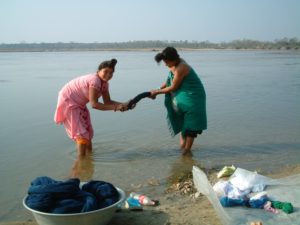
Because of the political situation, the tourist industry in Nepal is suffering.
- Today nobody came, Gopal says.
- I´m taking big risks, the hotel owner says. Every time I drive tourists from the airport I am afraid that the Maoists will stop me and say that they need my car. There are lots of women in the Maoist guerilla these days. You see a woman and then she opens the jacket and ops, she has a gun there.
- We don’t belong to either side in this war, Gopal says. – We are independent. We just try to make a living. We must have lentils and rice. Without rice there is nothing. Without rice you cannot do anything, without rice you are nothing.
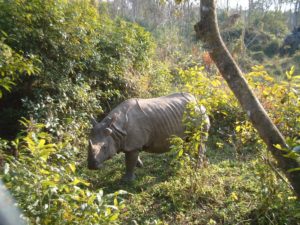
– The Kings initiative is taken in the name of peace, but we feel that the Kings action may be the right step for the wrong reasons or the wrong step for the right reasons, says Baburam Giri, leader of Nepal Human Rights Association, one of few human rights activists who has not yet been sent to jail. – We feel it is not comfortable that the human rights have been restricted, it is not welcome.
In the meantime people prepare themselves for a new blocade.
– We don´t have the possibility to think about democracy, first we need peace, says Shalik Ram, one of hundreds of thousands who have fled from the village and stranded in Kathmandu.
Chitwan and Kathmandu, February 2005
Research: Margunn Grønn and Bhupendra Basnet
Literature: Kathmandu Post and Nepali Times.
